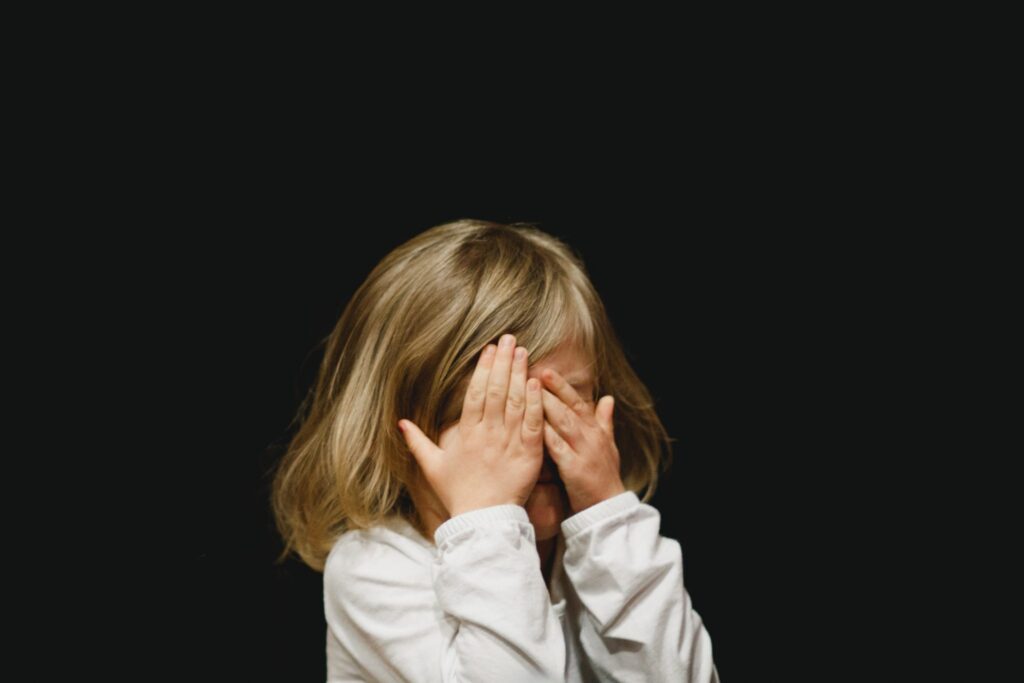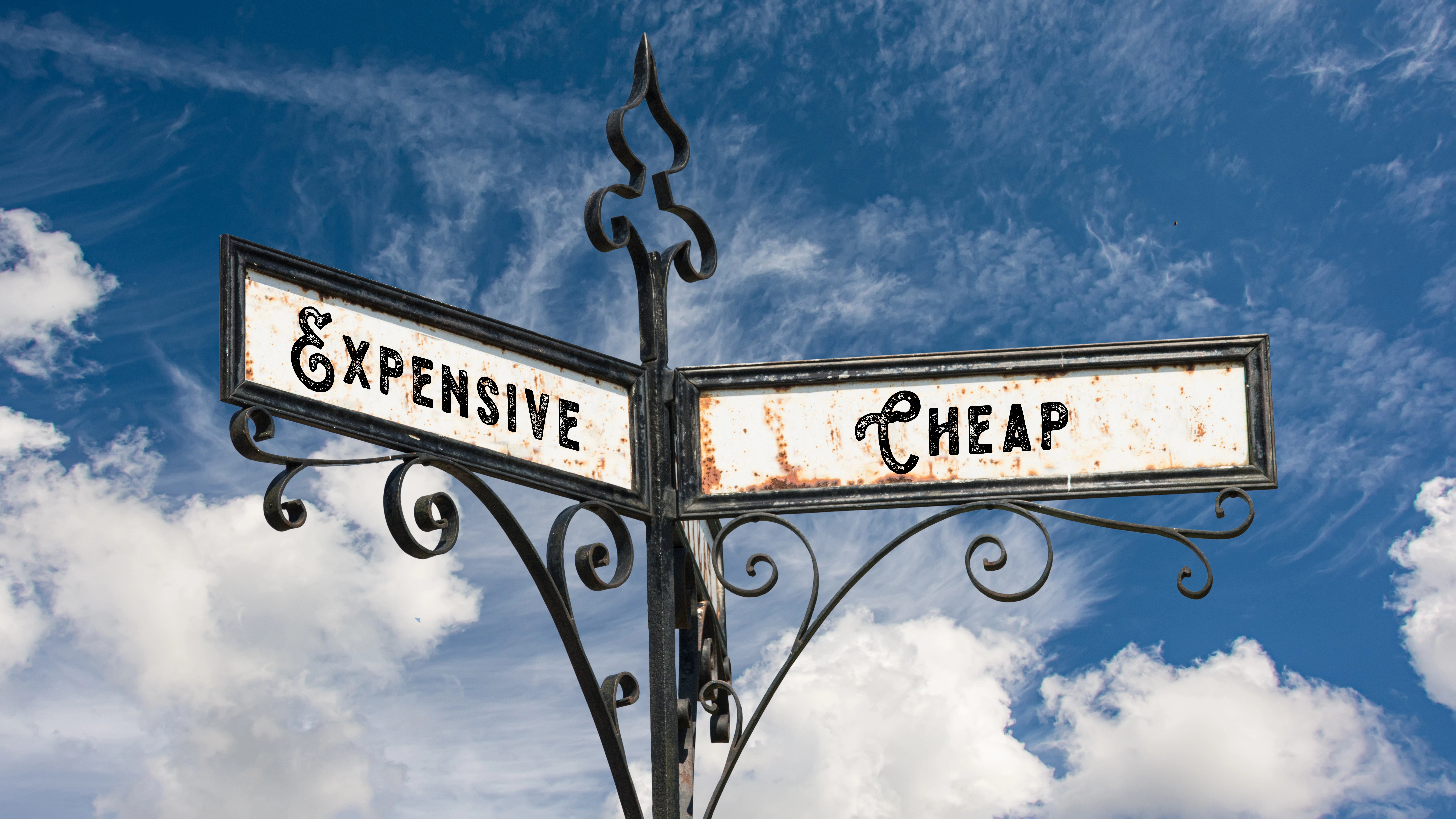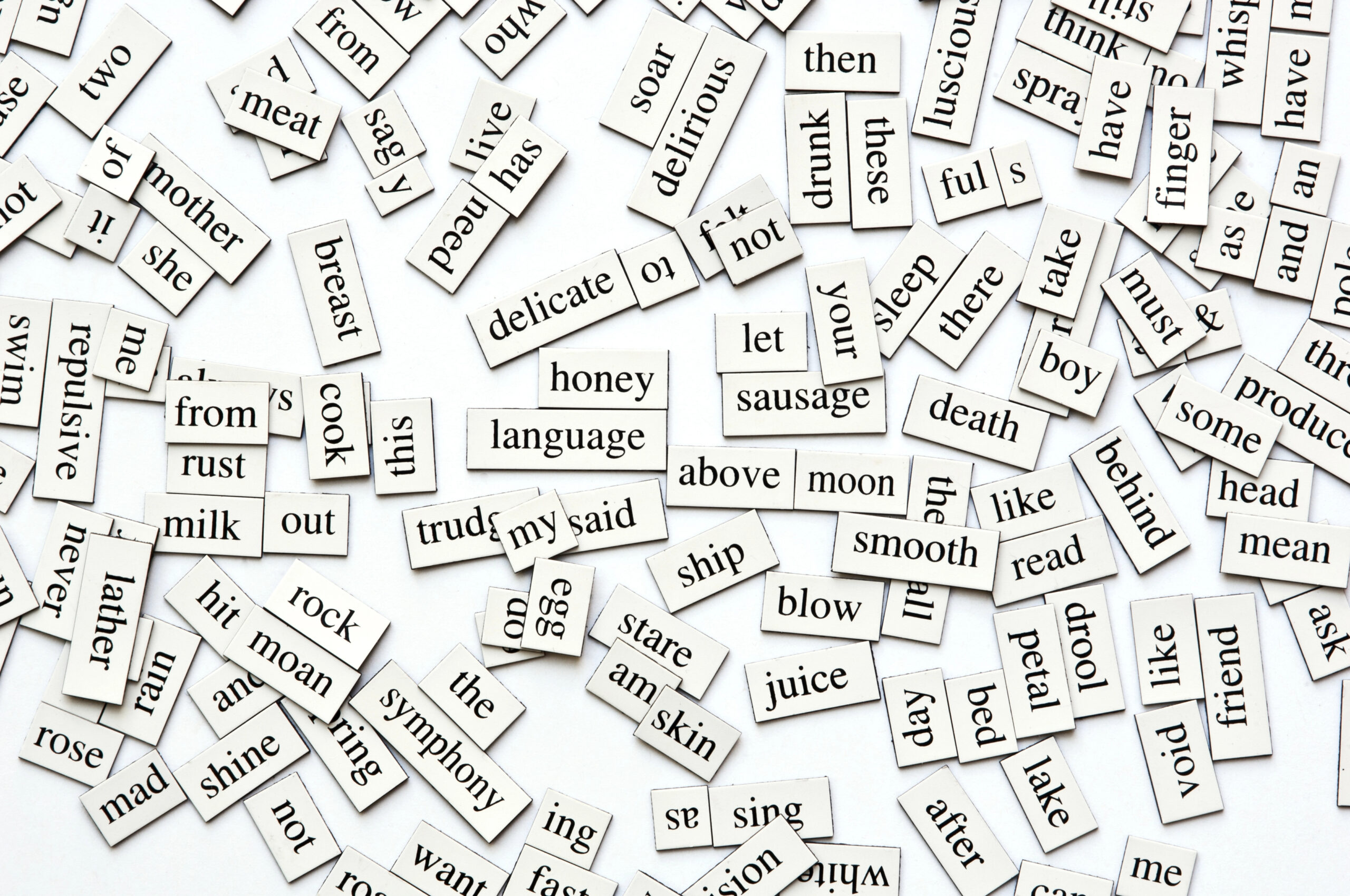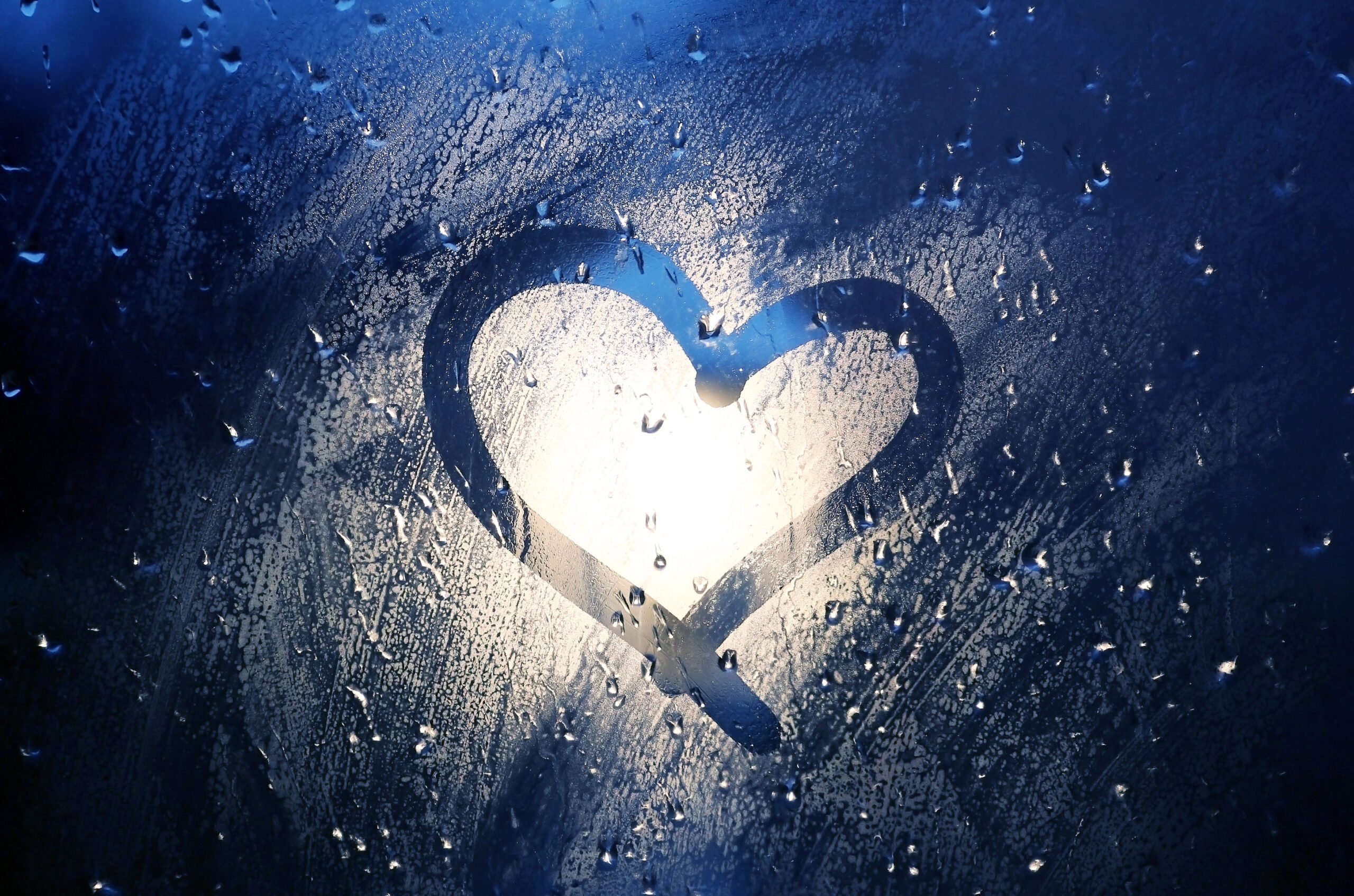
So, I know that it wasn’t just positive responses that were happening, even though that’s all I was seeing in my inbox.
It started when Steve Mattus, our Director of Education, wrote an in-depth response explaining the trauma behind shame, and how, in his own words, there is no “healthy shame” the way there is absolutely no “healthy sexual assault.”
Many other members of our Community spoke up, vulnerably, about how damaging and traumatic shame had been for them, from a young age. I had my eyes opened.
I began to understand shame as a system of oppression used in our culture to remove an individual from a sense of community and belonging.
Brene Brown has done work on this topic, and differentiates between “shame” (which is what I was calling “toxic shame”) and “remorse” (which is something different and more than the “healthy shame” I was referring to in the article.)
Because this is such a critical topic for folks, Steve edited his original post to be a little more complete than what he included in the conversation, and we’re including it here.
I want to thank him, and everyone in the Community, for helping me learn and grown on this topic. Since today is my 49th birthday, it seems appropriate that I grow a little. 🙂
With love,
Mark
Here’s what Steve Mattus, our Director of Education, wrote in response to my article.

****Shame is never healthy. It is toxic, poison, violent and destructive. All-ways.****
Why do I believe this to be true? I believe shame is inextricably linked to exactly what you shared in the article, “it is directed at a person’s essence, delivering the message, “You did the wrong thing because you are broken, your essence is bad, and you are unworthy of love or forgiveness.”
There are two parts to the message shared there:
- You did the wrong thing.
- You are broken, bad and unworthy of love or forgiveness.
Both of those parts are what make up the experience of shame. The toxic part can’t simply be magically removed and it still be called shame. Even in the statement itself there is a cause/effect (you did wrong *because* you are bad). I believe that, when dealing with the experience of shame, the two parts are inseparable, and therefore toxic.
Healthy shame is not remorse. Remorse is remorse. Two very different words and meanings – in definition, culturally, and in how they’re used.
Shame: I feel bad about what I did, and therefore I’m a bad person.
Remorse: I feel bad about what I did.
In your story, Mark, you didn’t experience the toxic aspect of shame. That is why what I believe you really experienced was remorse. Period. Not, “healthy shame.” Words matter to me, and I needed to make this point for myself.
I shudder at an article that espouses anything related to shame as healthy.
(It would feel incomplete for me to share that I actually think the title of the article is just a poor title. I don’t think the article was actually about shame at all, really. I think it was about, “The Healthy Role of Remorse in Business (& life). That’s how I translated the article in my own heart.)
And, I also want to share my personal take that shame was indeed not a part of what Kelly Diels posted. As Rachel said in a comment to your article, she simply stated facts. She acknowledged what people were doing. (I could impute or infer shame, but that’s my own personal journey.)
Her acknowledgements also became host to a dialogue that included shame and shaming as a part of it (in comments). There was inaction and silence (at least publicly) in response. Kelly posted on her wall just today, “Love is not: inaction, silence, complicity.” Certainly interesting to ponder.
That having been said, I also want to acknowledge that shame is here, it shows up, it can and often does present itself, usually in one of two ways:
1.) Personal, situational shame – this is when you have an experience and have a personal, internal sense of feeling ashamed. “I did this or that and, oh no, I’m a horrible person for having done that.” Hopefully, this thought quickly moves to remorse and turns into, “I feel so bad for having done that and I want to make amends.” The process is healthy. The healing is healthy. The shame itself is not. That’s why it’s so important to transform it into remorse – removing the toxic aspect of being disconnected from your innate goodness.
2.) Weaponized shame that comes from others, institutions and systems. This is the kind of shame that is especially violent and insidious. This kind of shame is utilized by those who abuse others, and is inherent within the systems of racism, classism, sexism, ageism, ableism, capitalism, white supremacy, etc.
It is never acceptable for one individual or any system to bring shame to another human. This is violent and abhorrent in my perception. (Yes, I’m using an absolute very intentionally.)
Regardless of how shame comes to you, it’s so incredibly important that it be faced – your heart held with love and compassion, so it can be healed as quickly as possible. Saying “shame is never healthy” doesn’t mean it ought to be bypassed, missed, hidden from or avoided. To heal anything, it must be faced. And since shame is so prevalent in this world, it’s important that we learn how to heal it, and facilitate the healing process, not adding to it by shaming others (directly or indirectly).
Shame can be a doorway to healing. I never want to be the one who builds the doorway of shame for another to have to heal from.
I have experienced deep shame for the vast majority of my life – from the moment I was born into this world, until just ten years ago, I lived in a swamp of shame. It’s who I was and how I came to know myself. It came from within, it came from my parents. It came from the cult I was raised in. It came from almost every “friend” I knew. I know it more intimately than I can even express.
I still live with shame every single day. I sleep under a blanket of shame and I walk with it as my companion every day. It’s always there whispering, “You are not enough; you are unworthy; you are broken.” EVERY day.
Shame is never healthy.
I know a lot of people who connect with Heart of Business who experience shame. I read it in their emails, listen to it on calls, and can feel it in their hearts.
I want to tell each of you that I understand. I really get how that feels. Shame NEVER feels like anything but how horribly unlovable and unworthy of goodness we are.
Please, please, please know that you are always lovable and worthy.
You don’t have to be anything other than who you are right this moment to be lovable and worthy.
Lots of people will shame you into thinking that if you don’t post something on Facebook, you’re somehow unworthy. Please don’t believe them – it’s not true. Trust me, once you post something on Facebook, they’ll shame you into doing something else. That’s not true either.
Please… Do all that you can to bring goodness into the world and help love triumph over hate. All-ways. And know, despite what anyone will tell you, that when you’re doing all you can in each moment – whatever that is – you are deserving and worthy of all the love available.
If you find ways that you could have done better, then allow yourself to feel remorse and an even deeper sense of grief, perhaps. This is healthy, and it is from this place that we can find the deeply rooted strength needed to grow and do more in a healthy way, that doesn’t hurt us or others.
If you’re feeling shame – I know it doesn’t feel healthy. That’s because it’s not. Don’t embrace it as such.
I view shame like chemotherapy. That shit’s toxic. And, you might come out cancer free on the other side, but there is no denying the poisonous and toxic effects – they take a toll too.
So if you’re feeling the burn of chemo-shame… as Mark shared in the article, “find your heart.” “Cherish your heart, and everyone’s heart, as the unbreakable, shining, and holy home of your pure essence that it is.” Your essential and inherent goodness, wholeness and worthiness is within you.
Even if you can’t connect to it, that’s okay too.
Rest in the fact that Oneness hasn’t given up on you. Neither have I.
In love and kindness,
Steve
What’s your take? How did the original article land with you? How does Steve’s response resonate? What’s your relationship to shame, especially in the context of your business? If you’re willing, please share thoughts in the comments.








21 Responses
Steve, I really want to thank you for giving a name to the concept of “weaponized shame”. While I was fairly lucky in not being exposed to a lot of shame growing up (guilt, not shame, was my culture and society’s weapon of choice).. in more recent years as a mature adult I experienced a culture where weaponized shame is used as a social control mechanism. (This is common in many countries in Asia and the Middle East, from what I understand). With this type of weaponized shame, it is not even about anything you did or didn’t do (it CAN be, but it does not have to be). With weaponized shame, you are bad, wrong, evil, shameful etc simply because of who you fundamentally ARE (old, young, male, female, straight, gay, this religion or the other one, the list goes on). Weaponized shame produces the feeling and the actual lived experience that NO MATTER WHAT YOU DO THAT IS GOOD, HEALTHY, AND POSITIVE, it doesn’t matter because you yourself are fundamentally wrong and bad because you belong to (xyz) demographic. And with weaponized shame, it is not just one person or a small group that believes and promotes and lives this: it is the entire culture and society. Weaponized shame was turned on the Jews in Nazi Germany, on African Americans for 400 years (and too often still today), on women pre women’s lib (and too often still today), on the LGBTQX community, etc. (I can’t remember what the X stands for.. but let’s put it in there to mean, whatever a person may be or how they define themself). My experience was somewhat different from what Steve describes in the sense that I was relatively UNexposed to shame for most of my life, only to be intensely targeted by weaponized shame under very specific conditions, as a mature adult. It is a very toxic experience no matter how one encounters it. To the extent that we are seeing it emerge and raise its ugly head as a series of social movements in our own society now, it has to be stopped. I don’t agree with the analogy of shame to chemotherapy drugs. Shame, and especially weaponized shame, is the actual cancer itself.
A strong piece that’s topical for me as I’ve been feeling ashamed over the result of decisions or lack of them over a long period of time leading to a bad situation. At any time I could have stopped and done things differently, but I didn’t have/access the combo of clarity and action to do it. You’ve prompted me to take more care over how I frame this to myself.
Steve, you have it spot on. And Mark thanks for posting and adjusting yourself.
Yes. Yes. Yes. This was exactly the disconnect I had with the previous blog post. So impressed with this response. So impressed with how healthily you guys handle disagreement. Thank you for providing this example.
This is incredibly educational and helpful. What an important topic, and I’m impressed with this community and the communication that can and is happening around such vulnerable subject matter. Namaste to you all.
Loving the topic is being discussed. Love even more that the community is safe enough to explore shame. We are blessed!
I appreciate the willingness to have a public conversation and transformation on this topic. Sincere searching and naming.
Mark and Steve, I am so impressed and inspired by the honesty and wisdom expressed here! It isn’t often I see truth simply leaping from the page. Thank you both.
(I miss you both, and treasure the time I spent at Heart of Business. While I no longer take courses (or pursue “business” per se), I am still part of the Mastermind group formed there in 2014 and the three of us continue to grow and evolve.)
I think that words should come out in the order they arrive in your mouth without censoring and self editing. Our educational system has failed us in that our vocabularies are not large, and our speaking ones, even less so. And in these charged times, we have to constantly explain our words to people who only see one meaning or have it filtered through their various activisms. And sometimes the act of clarification can be enough to create a snowball of anger that can overwhelm the speaker. I always write a first draft with exactly the words I wish to say, so I honor my intuition and spirit by telling the truth. The diplomatic version of the article will arrive in time, but the first draft of anything should always be without self-censorship.
“You don’t have to be anything other than who you are right this moment to be lovable and worthy.” That brings tears. That’s my favorite and the most tender and powerful sentence in that whole article, Steve. Thank you. And thank you, Mark, for listening so carefully to our comments and responding in this way. ❤️
Steve – Thank you for being clear in your message about shame. I appreciate that you were willing to keep sharing your understanding of shame. So much of what you wrote resonated with me. You spoke for many of us. Thank you.
Mark – Thank you for being willing to expand your understanding of shame. And doing it publicly.
Thank both for continuing to create a compassionate community – where we can learn and belong.
Steve, I could not agree more with what you are saying. And as someone who also carries the legacy of cult inflicted shame I know it to be profoundly damaging.
We are in an interesting time, in that we are becoming aware of the toxicity of shame, how it has been used to control members of families and societies, and how it is perpetuated. And now we are challenged to find new ways to interact with each other, to enforce or guide our community members with more evolved methods. It is part of culture to enforce behavior – how can we learn to do it individually and collectively in a way that elevates and inspires the other?
Conversations like the ones we are having will guide us into a more compassionate culture.
Thank you Steve! And thanks for your acknowledgement there is no healthy shame, Mark. I too lived in very deep shame most of my life. Only in recent years have I come to know and feel more of the truth about me. I didn’t even understand what I lived in the middle of until I studied Brene Brown’s work. When she talked about getting through a shame storm in a few weeks, my response was, you mean it’s possible to get through it? I am so deeply grateful that I know the truth now!
Steve, and Mark, I so appreciate this conversation about shame. I’m taking it in, ruminating, feeling, and finding healing. I do have a few things to point out. Steve, you write, “when you’re doing all you can in each moment – whatever that is – you are deserving and worthy of all the love available.” I’d just like to posit that we are always doing all we can. I believe humans are wired that way. And this segues to a wondering I have, coming from the viewpoint that everything has an intended positive outcome. What is the intended positive outcome of shame, both for the one feeling shamed and the one who shames? I’m curious for your take (Steve and Mark) and ask out of love, not judgment. Thank you!
Hi Beth!
Oh my goodness… thank you for calling that out. Yes… what you said is exactly what I was intending to communicate, and didn’t do so clearly. I appreciate the clarification and making the point. So important.
Shame is often weaponized in the small business arena with, “you have to do more,” or, “when you give your all, you get results.” Ugh. That’s toxic.
Thank you for pointing that out. We are always doing the best we can. Amen.
I love your last question too. What is the intended positive outcome of shame?
I was talking with another dear Heart of Business Community member on a street corner after a nice walk together just last Tuesday morning. We were considering this same question. And, while I haven’t had time to write about it, I’m going to share the free-flowing thoughts I’ve had about it in the past couple days. I hope that’s okay? This will be part processing and part where I feel clear.
My understanding is that anything that naturally arises in oneself is for a positive purpose. Our bodies, minds, hearts and spirits don’t fight against us, whatever is happening organically within us is meant to help us.
Therefore, there is no shame in shame. It’s here to help us. How? (This is going to get a little spiritual…)
My understanding of our purpose is to experience the Divine in every moment. To experience Love in every moment. Is it possible to have an experience of light without having an experience of darkness? Is it possible to be truly familiar with cold if we are not familiar with hot? Contrast helps us see clearly. Contrast helps us experience clearly. Contrast helps us with perspective.
So, to have the experience of the Divine in every moment, do we then also need to experience a sense of separation from the Divine? To truly be familiar with our own sense of worthiness to experience Oneness with Love, do we then need to have the experience of feeling unworthy and separated from The Love?
I don’t know, for sure, of course, but this is part of what I’m curious about. Feeling a sense of shame helps me understand what not experiencing shame truly feels like. That contrast, in some way, does feel like it has, as you said, an intended positive outcome. (Maybe I’ll need to post a second correction article, saying this? Maybe!)
The other thing that comes up for me around this, which *REALLY* helps me take the energy out of feeling my own sense of shame is that I think it may be showing up to protect me. For example: Let’s say I’m in a group, and I call someone a name, out of anger. I may feel a sense of shame as a self-protective mechanism to shield me from being chastised, held accountable, or shamed by the others in the group. If I denounce myself as unworthy of love (which I imagine to be the worst punishment imaginable) then what additional harm can the group do to me? I’ve already lowered myself as low as I can go – maybe it gives me a sense of control over how I relate to the world (lowest common denominator) in an effort to help me be hurt less?
Is that making any sense? I’m not totally clear on this part, but, like you, I do believe that things are here to help us – even if they’re truly unhealthy coping mechanisms – so there’s no shame in shame. And I now know there are much more healthy coping mechanisms that I can use.
Both of those are for the very personal, organic feeling of shame.
For someone who shames another, I rely heavily into Brené Brown’s work on shame where she says, “Shame is what we turn to when accountability is not working.” Whether it be due to a lack of skill or knowledge (or something else) related to accountability, if it’s not having the desired outcome, then shame is often the next step. The intended positive outcome for weaponizing shame, I believe, is changing, manipulating or controlling behavior in a person or group (e.g.: racism, classism, sexism, white supremacy, etc.).
Curious how that lands for you? Also, I’d enjoy hearing any insight you have in response to your question. Anything you can share to help me along in my journey with shame?
So grateful for your skillful and kind feedback and inquiry!
Oh my goodness… I’m just seeing all of these comments. I’m deeply touched. Thank you – all of you. Tears flowing. Deep connection. So appreciating how you all are receiving this dialogue between Mark and I. It’s been quite an amazing experience.
My heart is profoundly grateful to be in Community with all of you.
Thank you Steve. I agree with you. Shame separates us from the Divine. It’s the difference from “I made a mistake” to “I am a mistake.” It’s punishment as a coercion to surrender our value or submit in order to be accepted.
Thank you, Mark. I understand what you meant by “healthy shame” in the sense that we need to feel a sense of accountability and moral rejection at the wrongs we do. Otherwise, we become callous and lack ownership of the consequences of our actions. However, anytime we feel shame we are lacking compassion for ourselves.
I have experienced, however that some times shame comes –not from what others say to us but from our interpretation. One can challenge another to assume ownership of their power and the other person feel shame where none was intended because one’s observation triggers a toxic shame spot –regardless of how truthful, compassionate and empowering our approach was. I often observe that Victims kills their allies. Any observation that requires that they stand in their power is seen as criticism, attack or even shaming. I keep an eye on The Victim in me and within all of us because she is ever present distorting our opportunities into problems. She does not allow us to break free from our oppression because she identifies with it. Therefore, we need to track down when our feeling of shame is the result of we identifying with The Victim in us and when in fact we are experienced intentional shaming.
I have recently experienced a weaponized shame from someone I love and that I call friend and it was not only hurtful, but has taken me months to process even with all the transformation tools I have been blessed with. I felt Steve’s words deeply because that’s exactly how it was used. There was rejection, judgment, heavy doses of punishment and polarization –so that I was made to feel like I was a bad person. The thing that alerted me to this being toxic was that a 17 year friendship was taken out of context. All my love, generosity, integrity, honesty and wisdom were discarded because I did something the person did not like. Where the person pointed out my mistake, I acknowledged it. But the shaming did not stop. The punishment continues to this day and I feel the judgment in small and big ways. That is not a healthy response. That is shaming. In fact, where there is judgment, our Shadow is at work. I felt the impact and truly appreciate you giving it a word. Weaponized shame. Fortunately, I know who and what I am. I am love. And with a great flood of love from Divinity and my Sacred Self, I washed away the shame cast upon me while staying in the love zone for all involved.
As Mark often does, I asked myself “May there be love in this too?
I so appreciate the honesty and respect with which this community communicates. It is a testament to the leaders here.
Mark, you again and again surprise me with the qualities of the heart, the spirit of true leadership and the trades of genuine power; for only a person who owns his power deeply can stay as vulnerable and open as you do to learn and listen.
Thanks you both.
Steve & Mark, First I want to say what a wonderful model of integrity the two emails demonstrate! Integrity which includes being willing and able to see your mistakes or misunderstanding is a rare thing and I can not say enough about how much I value it. Thank You! As for Steve’s message which I read first it brought me to tears. My childhood was filled with shame which I still deal with today and unfortunately all too often use against myself. The depth of your experience with shame was clear Steve. Reading your deep, honest, heartfelt words awakened a realization of how often I shame myself and how my need to be seen is at least in part an attempt to protect myself from being shamed. Your words have come at exactly the right time to trigger a deeper understanding of self and the beginnings of a internal course correction. Thank You from the Bottom of My Heart!
Shame (as an evolutionary and adaptive emotion) is the sense of having done something wrong in the opinion of the one who has done it (evolutionarily developed to ensure being in a harmonious relationship with the group). Remorse is the desire to offer a measure of reparation for that wrongdoing. The attack on the self that is getting fold into the affect of shame in the above article is actually either a defense of self-attack and or an actual message received from another individual or group of individuals, rather than part of the emotion itself (Damasio, Izard, Ekman, Tomkins, Panksepp, etc..). It is important, if not essential, to differentiate an emotion from a defense. All emotions have evolved for adaptive reasons, that in the process of socialization they can be used against the self for the purposes of self-punishment or by others to punish is clear. So, is there healthy (if unpleasant) shame? Yes. This has been well established by a variety of fields (psychology, neuroscience, anthropology, etc..). Can this emotion in the course of development be perverted so that individuals suffer more than is healthy (as in someone who is chronically fearful, even though fear is life saving at times)? Most definitely.
Thanks, M, for this perspective.
Just had this discussion regarding shame, guilt and when it’s toxic.
Here’s my take on it.
Guilt: I made a mistake
Shame: I feel bad about making that mistake.
Toxic Guilt: I’m ALWAYS making mistakes
Toxic Shame: I’m a horrible person.
I think acknowleding our mistake and feeling bad about about it is normal and healthy.
It becomes toxic when it becomes distorted,i.e. I DON’T ALWAYS make mistakes and I am NOT a horrible person. In fact, I am usually pretty nice and helpful to others.
Just my take on it.